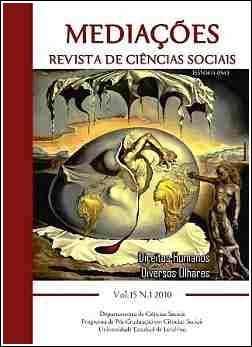Values change and tolerance among brazilians
DOI:
https://doi.org/10.5433/2176-6665.2010v15n1p220Keywords:
Tolerance, Postmaterialist values, Cultural changeAbstract
Ronald lnglehart, among other researchers, has argued that the emergence of postmaterialist values in the world was being accompanied by a more tolerant attitude towards minority groups and victims of prejudice. Although satisfactorily tested in the context of post-industrial nations, this hypothesis cannot be immediately applied to developing countries and materially unresolved, such as Latin America ones. This paper aims to contribute to this debate by presenting results of empirical tests regarding this hypothesized association in the Brazilian context. Using data produced by the World Values Survey, we present a summary of the evolution of some of the indicators on the theme of tolerance as well as the place of Brazilians within the Latin American scenario.Downloads
References
CLARKE, Harold. D. et al. The effect of economic priorities on the measurement of values change: new experimental evidence. American Political Science Review, n. 93, 1999.
CLARKE, Harold. D. Refutations affirmed: conversations concerning the EuroBarometer Values Battery. Political Research Quarterly, v. 53, n. 3, 2000.
DAHL, Robert. Poliarquia. São Paulo, Edusp, 1997.
DAVIS, Darren W.; DAVENPORT, Christian. Assessing the validity of the Postmaterialism Index. American Political Science Review, v. 93, n. 3, 1999.
HAIR, Joseph F. et al. Multivariate data analysis. New York: Macmillan, 1987.
INGLEHART, Ronald. The Silent Revolution. Princeton: Princeton University Press, 1977.
INGLEHART, Ronald. Culture shift in advanced industrial society. Princeton: Princeton University Press, 1990.
INGLEHART, Ronald. Modernización y posmodernización: el cambio cultural, económico y político en 43 sociedades. Madrid: Centro de Investigaciones Sociológicas/Siglo Veintiuno, 2001.
INGLEHART, Ronald; WELZEL, Christian. Modernization, cultural change, and democracy: the human development sequence. New York: Cambridge University Press, 2005.
MORGAN, George A. et al. SPSS for introductory statistics. New Jersey: Lawrence Erlbaum Associates Publishers, 2004.
POWERS, Daniel A.; XIE, Yu. Statistical methods for categorical data analysis. New York: Academic Press, 2000.
RIBEIRO, Ednaldo A. Teoria do desenvolvimento humano, cultura política e democracia. Revista Brasileira de Informação Bibliográfica em Ciências Sociais, BIB, São Paulo, n. 64, 2007a.
RIBEIRO, Ednaldo A. A consistência das medidas de pós-materialismo: testando a validade dos índices propostos por R. Inglehart no contexto brasileiro. Sociedade e Estado, Brasília, v. 22, n. 2, 2007b.
SNIDERMAN, Paul M.; BRODY, Richard A.; TETLOCK, Philip E. Reasoning and Choice: explorations in political psychology. Cambridge: Cambridge University Press, 1991.
ZANONE, Vaderio. Tolerância. In: BOBBIO, Norberto. et al. Dicionário de Política. Brasília: Ed. UNB, 1995.
Downloads
Published
How to Cite
Issue
Section
License
Copyright (c) 2010 Ednaldo Aparecido Ribeiro

This work is licensed under a Creative Commons Attribution 4.0 International License.
Copyright on articles published in Mediações belongs to the author(s): in the case of partial or entire republication of the original publication, we ask author(s) to indicate the original publication in the periodical.
Mediações uses the Creative Commons Attribution 4.0 International license, which allows Open Access, enabling any user to read, download, copy and disseminate its content so long as adequately referenced.
The opinions expressed by the author(s) are their sole responsibility.
































